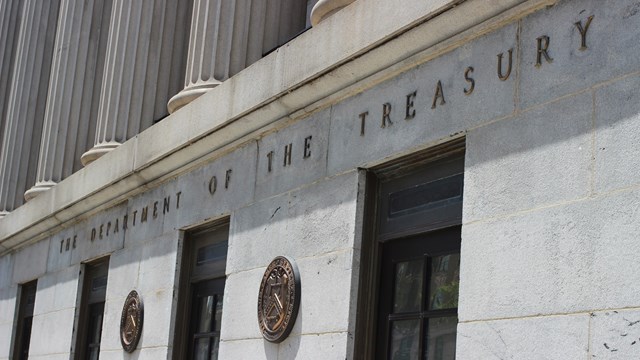The Obamas are leaving the White House, at least some of the Trumps will be moving in, and federal agencies have until mid-January to implement the outgoing administration’s policies and directives before the tide moves in what may be a very different direction under the new regime. Although Donald Trump’s presidential campaign indicated very little about how the long-time real estate developer’s housing policy might take shape, it will be interesting for the real estate and property management industries to have one of their own in the Oval Office.
Until then, several changes to regulations were made this past fall, and legal decisions across the country have raised new precedents—along with some new questions—on both the state and federal levels.
HUD and Owner-Occupancy
This past October, the Department of Housing and Urban Development (HUD) issued new and ostensibly less stringent guidelines on owner occupancy rules for condominium developments seeking financing from the Federal Housing Administration (FHA).
When compared to those for single-family homes, federally-financed mortgages in the condominium market have been relatively rare. FHA and other federal authorities have displayed a reluctance over the years to take on what they perceive as the additional risk condo units represent. The thinking goes that if an association were to fall into financial insolvency through catastrophic loss or mismanagement, the responsibility for the mortgages in the building would all fall on the FHA.
The worry from the feds predates the Great Recession. Prior to 2008, owner-occupancy rate requirements were as high as 80 percent. They were lowered to 51 percent amid the feverish activity of the pre-bust housing bubble. Now, to qualify for FHA-backing, HUD has said condominiums can carry an owner occupancy as low as 35 percent under certain guidelines, such as reserves equaling at least 20 percent of the association’s total budget, and no more than 10 percent of of total units can be in arrears.
With the qualifiers attached to the lower occupancy standards, it’s unlikely that many more condominiums will end up receiving FHA mortgages. FHA loans are most common in lower-income communities, and areas with less affluent homeowners will also have more buildings and associations with underfunded reserves and residents who are behind on fees.
HUD also announced more specific policy standards around the Fair Housing Act to combat issues of harassment within multifamily residential communities. The action establishes liability for landlords in regard to ‘quid pro quo’ practices or other hostile environment situations against tenants. In other words, if a maintenance worker or service provider comes into a unit to fix a leaking faucet, and solicits sexual favors for the job, the landlord can be held liable.
The Institute of Real Estate Management (IREM) has expressed its displeasure with the policy, saying on its website, “It holds housing providers responsible for third party actors. The HUD rule states the housing provider may be liable if they ‘knew or should have known of the discriminatory conduct and had the power to correct it.’ In other words, a housing provider could be liable for a tenant harassing a fellow tenant.”
Local Laws, National Impact
Here in New Jersey, the state’s Supreme Court settled a long-simmering insurance question regarding subcontractors. In Cypress Point Condominium Association, Inc. v. Adria Towers, L.L.C., the court ruled that if a subcontractor has conducted faulty work, subsequent damage to the property as a result—water damage for example—would be covered under insurance as an “occurrence.” Attorneys Margaret Raymond-Flood and Martha N. Donovan, members of Norris McLaughlin & Marcus, P.A. in Bridgewater, New Jersey have written of the decision, that some questions on the issue remain, including “Whether repair and replacement (or “rip” and “tear”) costs are also covered, [and] if these rip-and-tear costs are covered for additional insureds, whether or not the named insured can recoup them.”
The decision in New Jersey follows the lead of most other states in the nation, where such insurance liability issues have been more plainly decided. Association attorneys will continue to play close attention to home insurance questions, as developers continue to take advantage of growing real estate values in urban areas. The precedent in this case established liability for construction work, particularly in new developments. Many industry attorneys cite the growing number of structural problems that associations are encountering in new buildings, just as a few years after the original developers hand over the reigns to the permanent board of directors.
In New York City, one of the most-watched condo and housing markets in the world, Gov. Andrew Cuomo finally forged a deal between the Real Estate Board of New York (REBNY) and trade unions on the reinstatement of the 421a tax abatement. The law establishes wages for builders, and provides tax breaks for developers if they guarantee a number of affordable housing units in their various projects. After the old 421a had been expired for over 10 months, a deal was reached with minor adjustments. In exchange for an established standard wage for construction workers, developers won additional years in which they can receive the tax break. While New York’s market is a class unto its own in the United States, the reinstatement of the 421a law can be called a win for both unions and the real estate industry as a whole, and many experts there, as well as in the financial industry expect construction to pick up, which could help national developers’ bottom lines.
In Florida, voters okayed Amendment 2, which allows medical marijuana use for patients with qualifying conditions. The law might create some headaches for associations, as marijuana is still considered a Schedule 1 controlled substance under federal law, and as employers, homeowners associations still have the authority to conduct drug tests and prohibit usage on their private grounds if they choose to enforce it. Florida law as yet does not have any legal precedent in terms of dealing with common elements, or in situations where legally-obtained marijuana smoke might carry into other units, but other states have. Florida attorneys and managers will likely be keeping a very close eye on how authorities and communities in other parts of the country deal with threading this legal needle, and look to precedents in other states to navigate the community living issues that will inevitably arise as limited – or even total – legalization becomes more and more common.
A federal judge denied an Oak Park, Illinois woman the ability to rent out her condo unit after she had relocated due to medical reasons. Her association complained she had not followed bylaws that required the unit to be listed on the market for at least a year before it could be rented. The plaintiff’s argument went that the association was denying her right to “reasonable accommodation” under federal housing and disability laws. U.S. District Judge Andrea Wood ruled in favor of the association, finding that the plaintiff did not establish that she was limited in her options as a result of her disability, and not by financial constraints—which would not qualify as discrimination. Discrimination cases are tricky, and Judge Wood included in her decision that while the woman’s medical condition may indeed have caused a great burden, she did not also establish that she had no other ways to seek housing, such as staying with family members or entering a nursing home.
Still in Chicago, but away from the federal courts, an Illinois Appellate Court ruled that the Chicago Commission on Human Relations (CCHR) correctly ordered a condo association to pay the court fees for a lesbian couple who succeeded in a discrimination claim that originated in 2001. The condo association that was seeking the original decision to be overturned, claimed the commission did not operate consistently in its administration of the case. The argument didn’t work, as the court found that the women who were awarded $68,000 to cover their legal fees demonstrated the public cause in the legal battle, and were therefore entitled to the money. The decision reinforced the powers of the CCHR, and established another important precedent in which a minority class was able to find protection through a governing body of the city.
AirbnBattle
Many cities are simultaneously fighting a battle against Airbnb, the $30 billion home-sharing behemoth, in an effort to curb the many hosts on its platform from breaking rental regulations. In New York, Gov. Cuomo signed into law the ability for authorities to fine hosts up to $7,500 if they break rental laws. Since 2010, it is illegal in New York City to rent a unit for less than 30 days if the owner is not present in the unit during the time of rental. New York is Airbnb’s largest market, and the city has found it difficult to enforce the current restrictions – which means that many, many Airbnb listings violate the law.
In addition to flouting rental laws, housing advocates also complain that Airbnb adversely affects the housing market for low- and moderate-income renters, who now have to compete with opportunistic investors buying up rental units with the intent to list them on Airbnb, creating what amounts to a quasi-hotel.
New York State Attorney General Eric T. Schneiderman and several state legislators have contended that Airbnb is not above hospitality regulations already in place for traditional hotels.
In response, Airbnb has fought back aggressively, spending millions on lobbying lawmakers and launching marketing campaigns, as well as filing a lawsuit against New York, saying that the new fine on hosts violates the company’s first amendment rights. Legal experts cite Airbnb’s interpretation of the Communications Decency Act, which says, “No provider or user of an interactive computer service shall be treated as the publisher or speaker of any information provided by another information content provider.”
Airbnb is now in a full-on defense mode, fighting new regulatory efforts in other cities, including San Francisco and Chicago. The disruption of Airbnb, and its effort to evade regulations has caused condo associations to avoid allowing or engaging in home-share companies in general. Insurance coverage continues to be a sticky question when it comes to home-share services. Policies are not necessarily equipped to cover potential damages or events by occupants who are not exactly guests, and guests who are not exactly occupants.
Though condo, HOA, and co-op attorneys tend to frown upon Airbnb on the whole, boards should be well-versed in how their local laws apply to hospitality and short-term rentals. For New York boards in particular, they would be wise to spread to unit owners and shareholders that an illegal short-term stay could cost them thousands of dollars.
Looking Ahead...
While plenty of people are no doubt more than happy to see 2016 in the rearview mirror, 2017 will also likely be full of surprises. Whether those will fall in favor of co-op, condo, and HOA boards and residents or against them remains very much to be seen. Either way, it’s up to savvy boards and managers to keep themselves informed, and stay abreast of any changes that could affect their communities.
Tom Lisi is a former Associate Editor of and frequent contributor to The New JerseyCooperator.







Leave a Comment